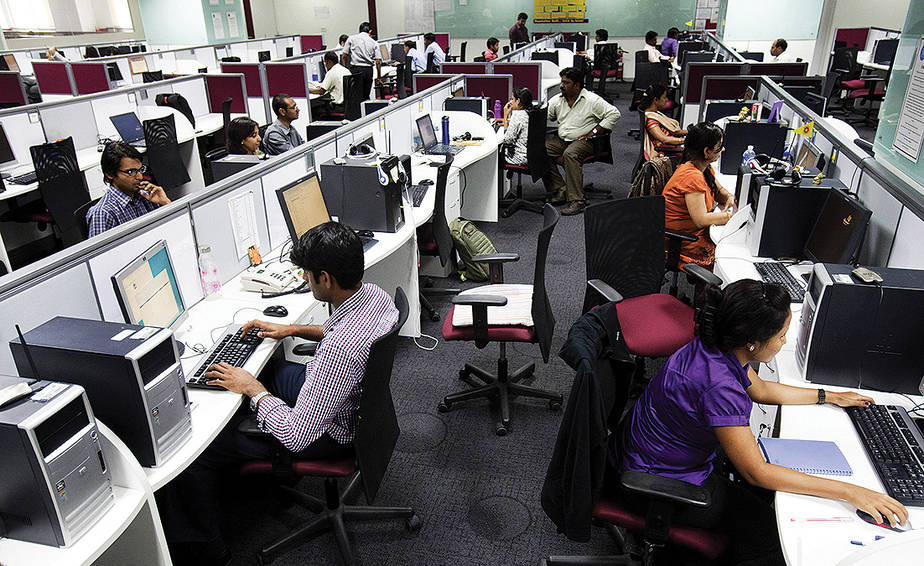“You will be working with us as a trainee on a probation period of six months. Congratulations!” These words suddenly alleviated all my stress. After several placement exams and interviews, I finally landed a job with a prestigious and reputed brand. Not for a moment did I think it would turn out to be a nightmare.
On the first day at my first job, I was too nervous to even talk to anyone. But I thought I would adjust gradually. A woman in her late 20s was introduced to me as my supervisor. She briefed me about the tasks I had to perform. It was all new to me but I was sure I could pick up with a little guidance. Every morning, I had to go to her to get my assignment for the day, and every morning she used to lambast me.
“What is wrong with you? Are you brain dead? How dare you send that e-mail without my approval, who do you think you are?” Initially, I used to think that maybe as a beginner, this rough handling was a rite of passage (like many parents and teachers in India think). I also tried to understand the situation from her position — that being the in-charge, she probably is under immense pressure. But who isn’t? So, can a person senior to you in position take that frustration out on you like you are some punching bag? Still, I would have accepted all the flak, had it been warranted — and limited.
Soon, it crossed the boundaries of reprimands; she used to make faces at me, crack offensive jokes about me, and continuously belittle all my efforts. I lost confidence and started to feel that I lacked calibre and diligence. I had always been a meritorious student, so I could not understand where wasI going wrong. Why was I being subjected to such harsh criticism? “I guess I am not well-suited to this field,” I once told my mother after coming back from office.
Every time I had to go to her for any work, my legs used to shiver with fear. I became sick of the same vexed expression, the shrugs, and the unnecessary insults. She often used to snatch papers from me. This aggressive body language was unbearable.
Adding to the humiliation was the treatment meted out to me when there was something I did not know: She used to smirk and make snide remarks.
It dampened the enthusiasm one usually has for his/her first job. No matter what I did, pleasing her seemed next to impossible. Mostly, the criticism was unjustified. I soon became afraid of going to office. Every morning, I had to convince myself to walk into office. I gave myself the reasoning that I would not get the opportunity of working with such an organisation again and I could not let it go. “You will get used to it. This is what happens at workplaces. Supervisors always end up torturing the juniors,” my friend said on hearing of my plight. The generalisation was too sweeping and I instinctively did not agree with it. Soon, I realised this wasn’t normal and that I did not deserve it. Nobody does!
My supervisor had been giving bad reviews about me to the boss. The entire work environment was crazy and unhealthy. He too yelled and used foul language. He said, “Tumse toh kuch nahin hoga. Tum log pehli job karne aajaate ho ek badi company mei toh dimaag kharaab hojaata hai. Tumhe toh mai fire hi kardunga. Is dhande mein tum chalogi nahin.” (You can’t do anything. You get your first job in a big company and it goes to your head. I will fire you. You are not suited to this business). I cried myself to sleep that night. How can this kind of behaviour and discouragement be justified? This is what people endure for fear of losing their jobs? I was not ready to accept it.
Three months passed, my mental well-being was so adversely affected, there was a point when I told my mother that I wanted to come back home. I was so depressed. One day, I finally gathered the courage to send a resignation mail to the HR. I told her all that had happened and cited all the true reasons for leaving the job. She took it lightly and tried to convince me to stay, saying that I will never get the chance to work with that organisation again. “Iss brand ko chhor dogi toh is field mein survive kaise karogi?” (If you quit this brand, how will you survive in this field?) she asked.
But I had made up my mind. I knew my talent and skills will land me a job someday. Maybe not with that big a brand, but at least I will have mental peace and work satisfaction. And I am happy right now. I am glad that I made the right choice and left that ugly environment, which was not allowing me to grow.
The saddest part is that people tend to overlook mental harassment at the workplace. There is no law in India against it, like there is for sexual harassment. Many a times, people don’t even realise what they are being subjected to is actually harassment.
Harassment should not be considered an accepted part of work culture.
— As told to Shruti Das





